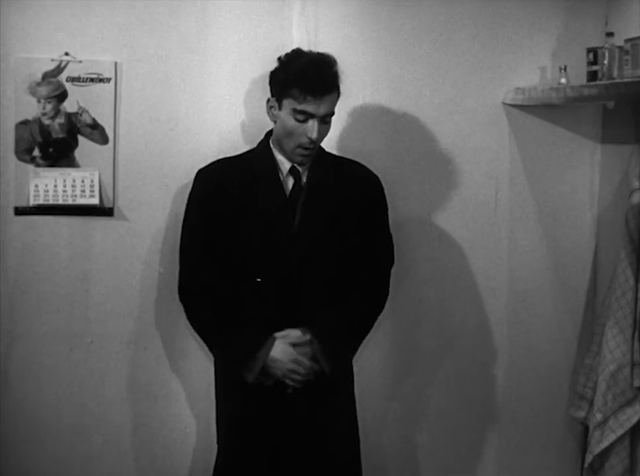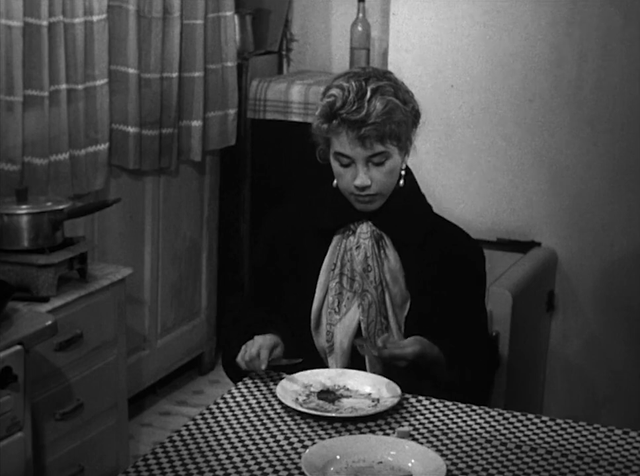At the core of Rohmer’s cinema is the gambit, a risky scheme consciously enacted to gain advantage, and the unexpected consequences that await our gamblers. In Présentation ou Charlotte et son steak, Walter (played by a young and handsome Jean-Luc Goddard) wagers that by introducing his friend Clara to Charlotte he can accelerate his romance with Charlotte, before departs for Switzerland. This twee setting is ripe with tension, allowing the audience’s romantic priors to lead their own expectations. I think the natural modern interpretation is that Walter’s manipulation is cruel but typical, a variation of negging by comparison, and as such the just outcome is that he should fail. A more charitable reading is that he is cornered by the shortage of time, desperately infatuated, just a shy man left with nothing but a potentially embarrassing hail-mary.
The introduction of Clara and Charlotte is short and utilitarian, polite greetings are exchanged, the trio walk, Walter helps Clara through the snow and the party disbands. You can imagine the scene without seeing it, Charlotte retreats to her accommodation clearly upset by Walter’s flagrancy as he pursues her. This feels natural and as an annoying and at times careless romantic I feel my life on screen. Charlotte’s apartment is humble, and I think is recognizably continental. Walter observes coyly from the corner as Charlotte broods.
People will often comment on the role of the beach in Rohmer’s films, a common place where chance encounters are abundant, but here the kitchen is perhaps the anti-beach, an inner-space immune from chance encounters but facilitating a deliberate gesture - Walter wants to be in Charlotte’s kitchen, by simply being there he is communicating intention. I think there is a certain undeniability about being in someone’s kitchen, one does not simply stumble into someone’s kitchen. Despite having invited the comparison to Clara, Walter is still in Charlotte’s kitchen at the end of the day.
Nevertheless, when he broaches the subject of a kiss, he is confronted with his gambit, why not kiss Clara? I love this kind of romantic dispute, every sentence is a minefield to be navigated carefully. To simply respond with because I want to kiss you is too committal. This feels so modern, seemingly against the argument that our romantic relationships have become too complicated, in support of the argument that even before colour film the fear of rejection placed us in romantic predicaments by which we are left unable to express simple truths.
I have always preferred to answer difficult questions truthfully with an annoying caveat that I can see that the question is unwinnable and so the negative implications of my answer are hopefully dampened. The example of this that Zizek often gives is why do you love me? Where irrespective of the answer given it can never be satisfactory. Here Rohmer evokes the same logic through the language of comparison. Charlotte is not alone in wanting a partner who desires us more than anyone else though doesn’t express their desire in terms of the desire for another person. Regardless of if the comparison is favourable or not merely the comparison itself is offensive.
Présentation ou Charlotte et son steak stands alone as an introduction to Rohmer’s cinema. It is a natural comedy, exploring the romantic gambits we busy ourselves with daily. The ways we as educated, emotionally mature people play with each other as though we are children, unable to predict the outcomes of even our most conscious decisions. In this case, Walter is eventually vindicated, though the future remains uncertain.







